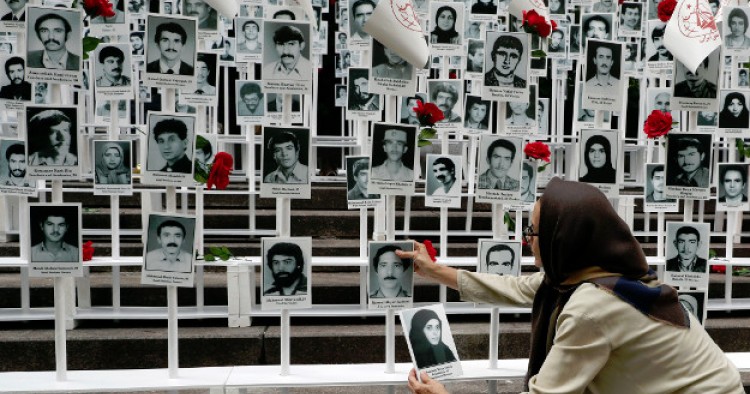Ahmadreza Jalali, a Sweden-based Iranian researcher detained in Iran since April 2016, is on a hunger strike in Tehran’s Evin Prison protesting his denial of access to due process and detention without charge, the International Campaign for Human Rights in Iran reported today. Jalali’s wife told the Campaign that her husband’s health condition was deteriorating fast while officials in the Rouhani government have refused to respond to her letters demanding justice for her husband. “A month ago (January 2017), I wrote a letter to Hassan Rouhani and asked for his help,” said Mehran-nia. “For the sake of an innocent citizen behind bars, I asked him to look into the unjust treatment Ahmadreza has received and to investigate Judge (Abolghasem) Salavati’s death threats. I haven’t gotten a response yet.” Jalali, a non-practicing general medicine physician, was visiting Tehran at the invitation of Tehran University when he was arrested.
Comment: The U.N. and international human rights organizations repeatedly highlight the Iranian regime’s illegal arrest, unfair trials, and mistreatment of political prisoners. But the recent wave of hunger strikes and its widespread coverage, particularly in the social media inside and outside the country, has brought increased attention to the regime’s dismal human rights record. The arrest of Jalali is perhaps one reason that the Swedish government plans to propose a U.N. draft resolution on human rights abuses in Iran on March 10. The Swedish envoy to the U.N. said the purpose of the resolution was to extend the mandate of the U.N.’s human rights rapporteur to probe the Iranian regime’s human rights record for a period of one year. Moreover, the Swedish ambassador to Tehran, Helena Sångeland, tweeted earlier today: “The Swedish Embassy is talking with repr. of IR demanding clarification on his situation and permission to visit. #SaveAhmad #consularduties.” The arrest and mistreatment of Nazanin Zaghari-Ratcliffe, a British-Iranian mother jailed in Iran on spurious charges, is another widely publicized case that has further exposed the Iranian regime’s acts of repression against innocent Iranians, particularly dual citizens.
The Middle East Institute (MEI) is an independent, non-partisan, non-for-profit, educational organization. It does not engage in advocacy and its scholars’ opinions are their own. MEI welcomes financial donations, but retains sole editorial control over its work and its publications reflect only the authors’ views. For a listing of MEI donors, please click here.













